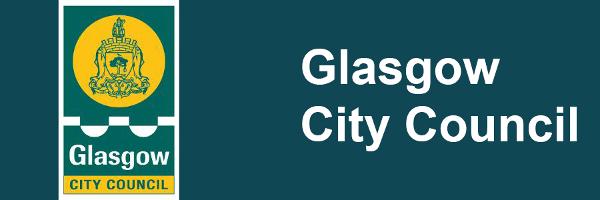Glasgow Marks Clean Air Day 2022
Published: 24 May 2022
Overview
Air pollution is harmful to our health and has the greatest impact on the most vulnerable such as the very young or elderly, and those with existing respiratory and cardiovascular conditions.
Glasgow is determined to improve the quality of the air we all breathe and as we mark Clean Air Day 2022, we're highlighting just some of the work going on in the city to combat harmful air pollution.
[image to be inserted here]
Glasgow's Low Emission Zone (LEZ)
Our Low Emission Zone is an essential measure to protect public health by tackling longstanding breaches of air quality objectives in the city centre. The design of Glasgow's LEZ also supports the city's wider climate change ambitions by encouraging a shift away from private car use towards more sustainable forms of transport.
When fully rolled out on 1 June 2023, Glasgow's LEZ will apply to all vehicle types except for motorbikes and mopeds, and those vehicle types/uses considered exempt which includes vehicles for disabled persons. Those with vehicles registered to a residential address within the zone area will have until 1 June 2024 to comply with the emission standards.
The inclusion of all vehicles will maximise the health and environmental benefits deliverable and builds upon the first (bus-only) phase of Glasgow's LEZ which was introduced in 2018 and has since seen a much greater proportion of cleaner, low and zero emission local service buses travelling through our city centre and beyond.
Failing to meet LEZ requirements will result in a penalty charge. This is set nationally at £60 and will be reduced by 50% if paid within 14 days. Where repeat entry by the same vehicle is detected within a 90-day period, this penalty charge rate will double, doubling again on each subsequent entry up to a maximum amount determined by vehicle type.
To help people prepare early for Glasgow's LEZ, all key information is available on our LEZ webpages including an FAQ section which covers exempted vehicles, penalty charges, emission requirements and national funding availability.
Public Transport Provision in Support of Glasgow's LEZ
- Electrification of all Car Club vehicles available for hire from the LEZ city centre zone
- Additional EV charging points
- Expansion of the nextbike hire cycle scheme
- Improved Traffic Signal Infrastructure
Transport/Active Travel Strategies
New strategies on transport and travel supports the city's ambition to reduce vehicle kilometres travelled in Glasgow by 30% by 2030:
- Glasgows' Transport Strategy 2022-2030 - sets out almost 150 policies that seeks to support the city's economic success and create thriving, liveable neighbourhoods
- Glasgow's Active Travel Strategy - encourages a shift away from private car use and instead strives for walking, wheeling and cycling to become the first choice for everyone to travel locally
Spaces for People
Introduced during the pandemic to suppress the spread of the virus and help manage demand on public transport, Glasgow's Spaces for People programme delivered a significant number of temporary travel interventions across the city to ease physical distancing in public places, mainly through the provision of widened footways, road closures and segregated cycle lanes.
Most Spaces for People schemes are now in the process of becoming permanent (including over 40km of additional dedicated cycling space) following an independent review which highlighted their long-term active travel and sustainability value.
Eco-Stars - Helping Fleet Operators Improve Efficiency
ECO Stars is the FREE recognition scheme that aims to help fleet operators improve efficiency, reduce fuel consumption and emissions whilst achieving cost savings.
The initiative is operated on behalf of the council by TRL and is available for fleets of any size.
Membership has shown in numerous case studies to have had a dramatic improvement in fuel efficiency which not only saves money for organisations. It also results in a reduction in environmental impact.
Read more here about how Eco Stars can help your business.
Air Quality Monitoring/Anti-Vehicle Idling
We operate a range of monitoring equipment in various parts of the city to keep an eye on air pollutants such as nitrogen dioxides, particulates and ozone.
A further four monitoring sites located on Hope Street, Great Western Road, Townhead and High Street are operated as part of the UK monitoring network.
More information on pollution monitoring and actions to improve air quality can be found in our annual reports, available here.
Transport Scotland Funding Programmes (Bus/Coach)
Bus Emissions Abatement Retrofit (BEAR) programme:
BEAR funding from the Scottish Government provides bus and coach operators with grants towards the cost of retrofit technology. Retrofitting allows for the exhaust systems of mid-life buses and coaches to be upgraded to the standards to drive within LEZs. The exhaust retrofit systems are accredited by Clean Vehicle Retrofit Accreditation Scheme to improve emissions to the latest Euro VI standard or better. More details can be found here.
Scottish Ultra-Low Emission Bus Scheme (SULEBS):
SULEBS supported the Scottish Government's net zero targets, its commitment to delivering Low Emission Zones and Scotland's ambitions for transport decarbonisation. It provided support for the purchase of new ultra-low emission buses up to a maximum 75% of the differential costs against diesel buses, depending on their zero-emission running capability. Support was also available for the infrastructure for this technology of up to a maximum 75% of the capital cost.




